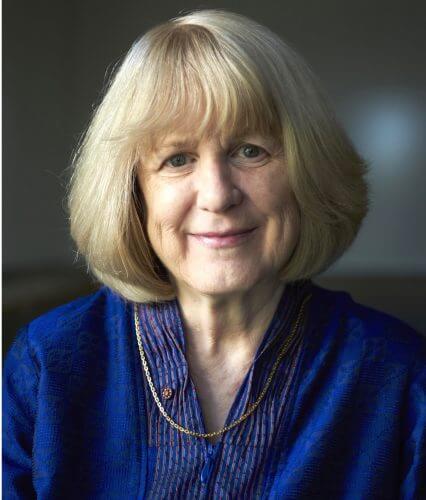Prof. Marie Keller King, recipient of the 2018 Dan David Prize who discovered theMutations in the geneBRCA 1 calls for the adoption of the tests released to the market by a company Color Genomics. The test, which is sent to the company's laboratories, examines not only the mutations in the genes and contributes to the understanding of the risks of breast and ovarian cancer, but also detects mutations in other genes

"Every woman over the age of 30 should consider using a home test to detect the risk of getting cancer," she says Prof. Marie Keller King (Mary-Claire King), one of the leading genome scientists in the world. The announcement comes following the release to the general public of two tests released to the market by the Color Genomics company, intended for home use, and allowing a simple saliva test to discover the degree of risk of contracting several types of hereditary cancer.
The work of Prof. Keller King, one of the pioneers and pioneers in the field of medical genetics, led to the discovery of mutations in the BRCA 1 gene, the presence of which puts women at risk of developing breast and ovarian cancer. While DNA of all including the BRCA 1 and BRCA2 genes, the mutation in which can increase the risk of getting cancer by a rate between 10 and 80 percent. Her discoveries contributed to the understanding of the early tendency to get hereditary cancer and caused a revolution in the medical approach to cancer screening tests, while adapting the treatments to the specific type of cancer. Prof. Keller King recently won the Dan David International Award for "extraordinary contribution to humanity". The award, given in Israel, is currently among the top international awards and will be awarded to her on May 6, 2018, in Tel Aviv. Prof. Keller King currently serves as an unpaid consultant to Color Genomics.
The Color Genomics test kits are currently sold to anyone who requires them on the website Company And also on the Amazon website. The test, which is mainly a saliva sample, which is sent to the company's laboratories, examines not only the gene mutations and understanding the risks of breast and ovarian cancer, but also detects mutations in other genes. "In the first stages, we sent the company 400 DNA samples directly from our laboratories. complexity and we challenged it by locating the mutations," said Prof. Keller King. "I must point out that they overcame every problem and didn't miss a single one. They even came up with one mutation that we hadn't detected, as at the time we evaluated the patient, that particular gene had not been linked to breast cancer. They had, therefore, a 101 percent success rate with the samples.'
According to Prof. Keller King, the great advantage is that if the tests reveal mutations that require action on the part of the subject, Color Genomics genetic counselors contact her, go over the result and explain what can be done next. "It is important that the subjects understand what the options are before them. It is quite possible that they will not get cancer in the future, but that they will understand that the risk is high and will receive recommendations for preventive activities, of one kind or another. I definitely think that women over the age of 30 should consider having such tests done. We have a choice to do the test, now or in a year. Not everyone has to do the tests, but it's a good idea. Every woman needs to get the information that will allow her to understand what she can get from performing these types of tests. One of the common mistakes is that only women with a family history of breast cancer should worry, since mutations can be detected even without a 'family history'.
